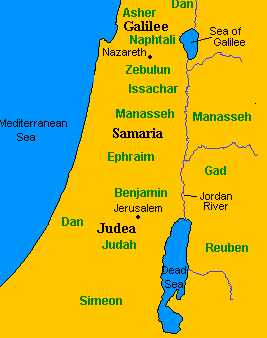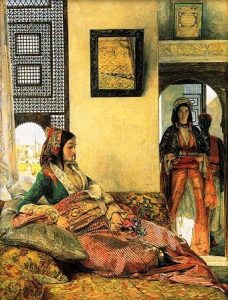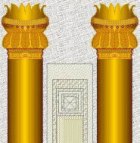Two little princesses
- Basemath means ‘sweet perfume’
- Taphath means ‘essence’ or ‘distillation’
Imagine two little girls, brought up in the luxury of Solomon‘s court in ancient Jerusalem.
They saw the building of the great Temple and the royal palaces, the political manoevering of their father’s court, and the endless bickering of the hundreds of women in the royal harem. They probably saw the visit of the fabled Queen of Sheba.
Their marriages were arranged when they were still children.
When they reached maturity they were married to important men who could be useful to their illustrious father. No doubt Solomon loved his daughters, but they were also an important part of his strategy to weld the northern and southern provinces of Israel together.
They were sent to two provinces in fertile northern Galilee, the food bowl of Solomon’s kingdom, and there they lived out their days.

Harem room at Topkapi Palace, Istanbul
If they lived a normal life past childbirth, they saw
- rebellion against their brother Rehoboam, king of Israel
- the breakaway of the northern provinces where they lived; these formed a new kingdom called Israel
- the ascendancy (especially over themselves) of their brother’s enemy Jeroboam, now the new king of the northern provinces
- the subsequent lowering of their status and influence; they may possibly even have been repudiated by their husbands
- Jeroboam’s promotion of the Golden Calves and worship of the fertility gods
What was expected of a Princess?
Basemath and Taphath were the daughters of Solomon, brought up in his luxurious court. Each of them knew from an early age that they had a special destiny.  They would marry important men chosen by their father, and live in a provincial harem far from Jerusalem.
They would marry important men chosen by their father, and live in a provincial harem far from Jerusalem.
As princesses they had a special purpose and task in life.
They were expected to perform certain duties for their father –
- to watch what was happening in the area their husbands governed and
- report back to him if she saw or heard something that concerned their royal father and his realm.
At the same time their central preoccupation was their new home and the many people who lived there.
Each royal woman was expected to produce children, supervise and teach them, and push them into power.
Basemath and Taphath marry

When the time came for them to marry, Solomon gave Basemath to an important official in his kingdom, Ahimaaz of Naphtali, one of the twelve administrator/governors in Galilee.
Taphath was given to Ben-abinadab in Naphath-dor, northern Galilee. It was important for Solomon to have good relations with these man, since the northern tribes were the most likely to cause trouble for Solomon.
Solomon is most famous for his wisdom, but he was also an inventive administrator – or clever enough to employ someone who was.
He divided Israel into twelve administrative districts, each of which was expected to provide the king and his household with food for one of the months of the year.
The nominated leader of each district therefore held a position similar to a governor. He was expected to
- assess the capabilities of each landowner and decide what food they could provide.
- collect this food
- keep a record of what was collected, and
- deliver the food to the king’s storehouse.
It was a regulated form of taxation.
Changing fortunes of Basemath & Taphath

Basemath and Taphath did not have an easy task. As Solomon’s reign progressed, the northern tribes became more and more disgruntled at what they saw as discriminatory treatment.
At first Solomon was astute. He was able to mollify the tribes. But they began to complain more and more that the southern tribes were taxed less, treated better and listened to more than they were.
The fortunes of the two women changed. While their father held the kingdom in check they were honored as his daughters and treated with respect. But as he got older he began to lose his grip on the tribes, and the standing of the two women began to slip.
Solomon dies – what then?

Drawing of Rehoboam by Hans Holbein the Younger
When he died his son Rehoboam, half-brother to Basemath and Taphath, was not able to hold them in check, and rebellion broke out.
Rehoboam mishandled the situation badly, relying on the advice of his fashionable young friends rather than the sage advice of older heads – Edward VIII all over again…
Rehoboam paid the price, losing ten out of the twelve provinces his father had governed.
The new king of the ten northern breakaway provinces was Jeroboam, who was hostile to the brother of Basemath and Taphath, and therefore no friend of theirs. He may have suspected them of lingering loyalty to their brother.
What happened to them, we do not know. The two women disappear into history.
![]() Custom Search
Custom Search
Bible Study Guide: Resource for Women in the Bible
Royal Women of the House of David
Basemath and Taphath, daughters of King Solomon
© Copyright 2006
Elizabeth Fletcher







